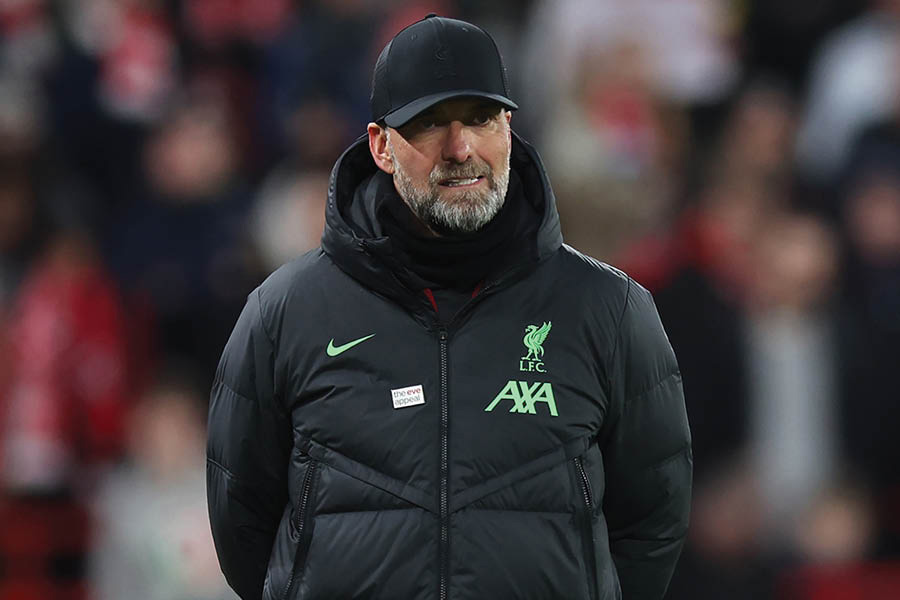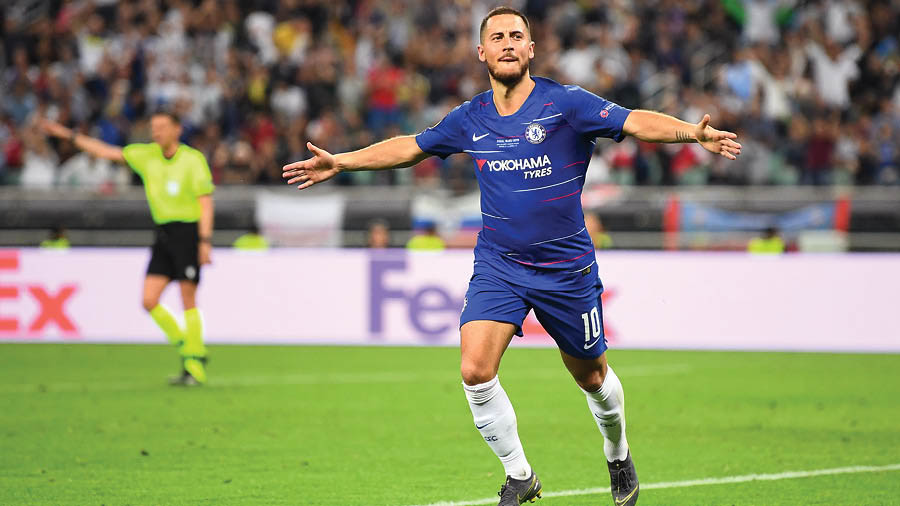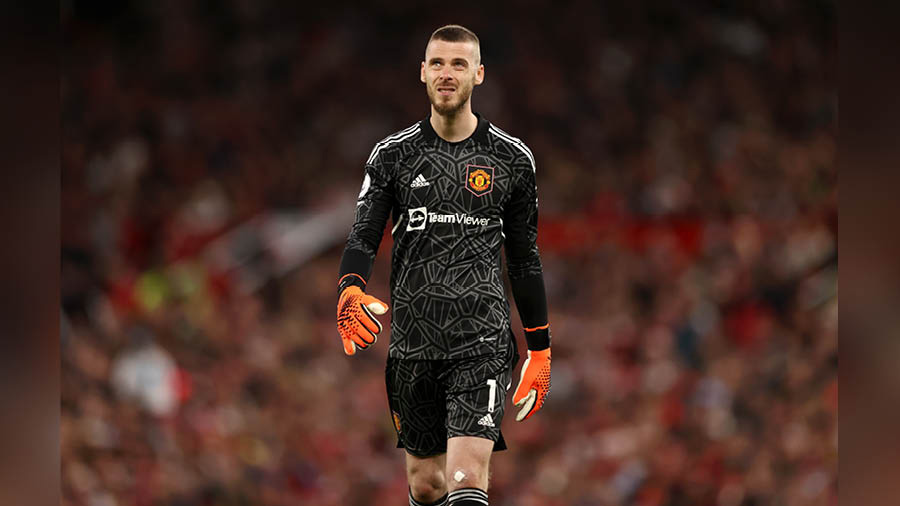“It’s not important what people think of you when you arrive. It’s important what they think of you when you leave.” No, this is not a climactic quote from a Marvel superhero or ChatGPT’s translation of a Nietzschean cliche. Instead, it is what Jurgen Klopp said when bidding farewell to his last club, Borussia Dortmund. Arriving at Liverpool in October 2015 as a cross between a maverick and a messiah, Klopp will be leaving Anfield at the end of this season after nine exhilarating campaigns. Having christened himself as “The Normal One” during his first press conference in England, Klopp will quit English football as arguably the most important figure in Liverpool’s history since Bill Shankly, the Scot who laid the foundation for the Reds’ greatness in the ’60s and ’70s.
For almost a decade, Liverpool and Klopp have felt like a match made in the eccentric echelons of footballing heaven. A man whose vibes reveal more than his words in charge of a club whose legacy has always been about invoking the intangible. A coach who redefined “heavy metal” in the birthplace of The Beatles and a team that has redefined what it means to give it all for the gaffer. While Klopp has brought Liverpool back into the realm of Europe’s elite, Liverpool have put their faith in him in a way no footballing establishment has trusted a manager in recent times (with the possible exception of Manchester City and Pep Guardiola). Why, then, is the time right for the two to part? Because Klopp and Liverpool have come as far as they could have come with each other. Just because their pairing seems perfect, it does not mean it should be permanent.
Running on fumes
Anybody that saw Liverpool last season knew they were running out of energy, inspiration and ideas. Halfway into this season, Klopp has admitted to running out of energy himself. “My managerial skills are based on energy and emotion and that takes all of you. If I cannot do it anymore, [I will] stop it… It was not my idea when I signed the new contract. I was 100 per cent convinced in that moment that we would go until 2026. But I realise my resources are not endless. I’m not a young rabbit anymore,” explained Klopp, shortly after his typically theatrical snippet of leaving Liverpool went viral.
Managing any team in the Premier League for eight and a half years is gruelling enough. Add to that how Liverpool have been the only ones to consistently challenge the irrepressible machine that is Manchester City over the past decade as well as the expectations that come with being the face of one of the most recognisable clubs in the world, and it is no surprise that Klopp is exhausted. For a team that is shaped in Klopp’s image, that exhaustion would have meant one of two things were he to continue — a dilution of the footballing philosophy that set Liverpool apart or a dip in the desperation with which Liverpool would chase their goals. A good example of both are the last years of Arsene Wenger at Arsenal.
In all his seasons with the club (including the current one), Klopp has ensured that Liverpool remain among the top three attacking teams in England’s top flight, as evident in the average number of shots taken per game since 2015-16. In doing so, Klopp has transformed his Liverpool team from a high-pressing (‘gegenpressing’, if you prefer), counter-attacking team to one that is more measured and precise in possession. This transition from organised chaos to complete control reached its zenith in 2021-22, when Liverpool could have won a history-making quadruple (of the Premier League, FA Cup, Carabao Cup and the UEFA Champions League). In reality, they bagged the two least coveted trophies of the lot before showing clear signs of burnout the following year. While Liverpool are still alive in four competitions this season and currently sit atop the Premier League table (five points clear of Man City, having played a game more), they have not been able to rediscover the identity that made them one of the planet’s fiercest sides in the peak years of Klopp.
There is little reason to think that such a rediscovery will happen in the coming terms when Klopp himself is lacking motivation. Throw in the fact that the club cannot find a way to retain its sporting directors (the days of Michael Edwards’s reassuring presence are long gone) and that three of Liverpool’s biggest stars — Mohamed Salah, Virgil van Dijk and Trent Alexander-Arnold — are all 18 months (or less) away from wearing fresh colours, and Klopp’s decision makes even more sense.
Waiting in the wings
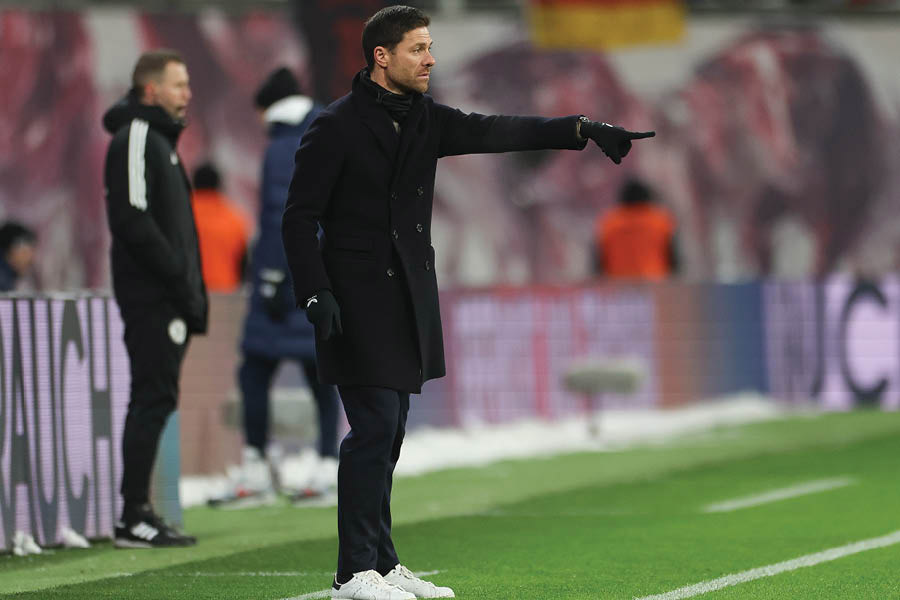
Xabi Alonso has taken Bayer Leverkusen to new heights in Germany Getty Images
The departure of great managers does not automatically guarantee disaster. Just ask Barcelona, who kept winning domestic and continental honours after Guardiola’s farewell in 2012 or Real Madrid, whose golden spell under Zinedine Zidane ended in 2016, only to lead to more trophies after a brief blip. Naysayers can always point to Manchester United’s dismal decade post the retirement of Sir Alex Ferguson in 2013, but the caveat is that Liverpool (sorry, Red Devils) are far more savvily run than the glorious mess going on at Old Trafford. To further encourage the Kop, there is no shortage of ready-made candidates to take over from Klopp.
In pole position to succeed the German is former Liverpool midfielder Xabi Alonso, who is set to break Bayern Munich’s stranglehold over the Bundesliga with his effervescent football at Bayer Leverkusen. Besides being a fan favourite, Alonso is equipped to take Liverpool’s possession-centric dynamic football to the next level. He may not have the charisma of Klopp, but he definitely has the gravitas that Klopp brings to the dressing room. Another potential replacement is Roberto De Zerbi, whose biggest fan is none other than Guardiola. At Brighton, De Zerbi has shown what micro management, down to every last blade of grass, can bring. Replicating the same formula under the brighter glare of Anfield will be harder, but De Zerbi is never lacking in confidence. Should Julian Nagelsmann lead Germany to victory at this summer’s European Championship, the 36-year-old would become an instant candidate to take over the reins at Liverpool. A Champions League finish for Aston Villa this season would have a similar effect on Unai Emery’s prospects to move into the hot seat once Klopp has vacated it.
Klopp’s next chapter
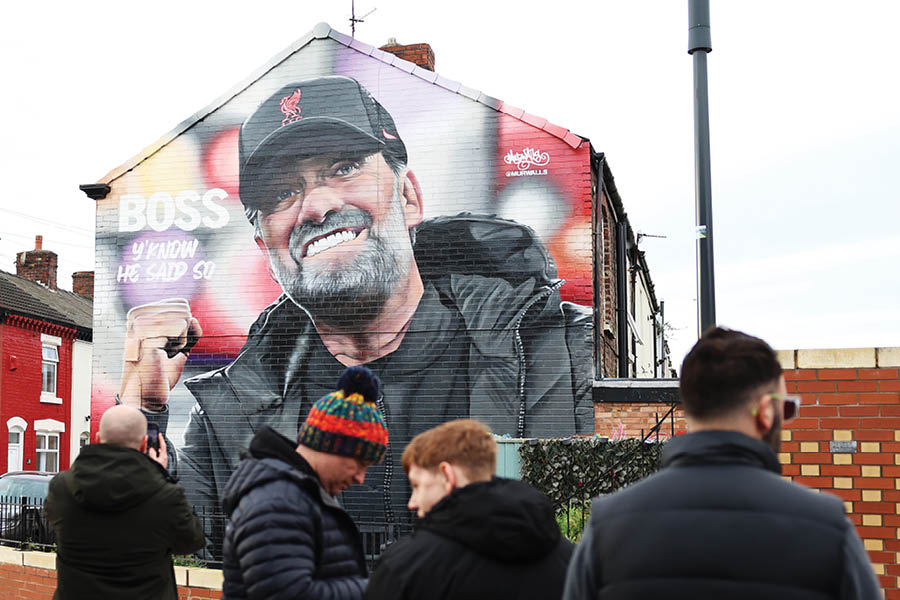
Liverpool fans will have a hard time moving on from Klopp, even though success should continue at Anfield Getty Images
In other words, hope will not leave with Klopp. Liverpool should march on towards more titles, even if there is a season or two of disappointing disruption. What is far more uncertain is the future of Klopp himself. Turning 57 in June, Klopp has vowed to not coach another Premier League team. He has hinted that he may never be coaching again once his one-year sabbatical is over. Having won everything there is to win in the club game, Klopp may be tempted to look towards international football. An offer to lead Germany into the 2026 FIFA World Cup is tempting, unless Klopp is lured by a foray into Spain (with Barcelona or Real Madrid) or France (with Paris Saint-Germain). It is quite the stretch to imagine Klopp managing Bayern Munich while a move to Saudi Arabia to fatten the purse would be both unlikely and uncharacteristic.
Whatever the next chapter may bring for Klopp, his focus over the next few months would be to write a fitting ending for his present one. Not one to receive happy endings at his former clubs, Klopp is nonetheless eager to wrap up his Liverpool journey with more silverware. With the feeling that even in the future, it would be impossible to think of Klopp and Liverpool without each other.
